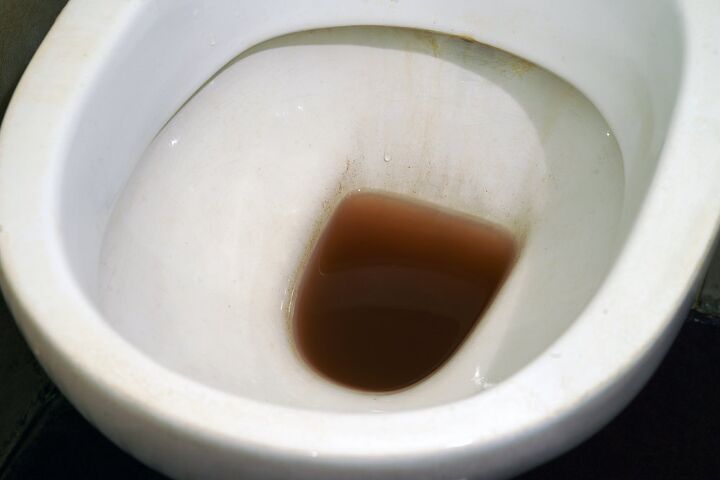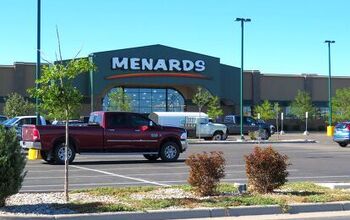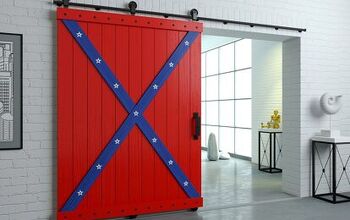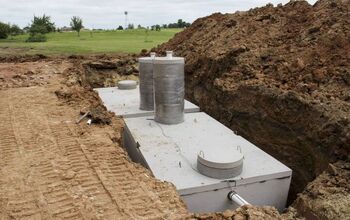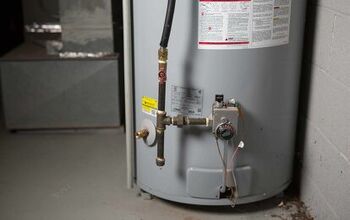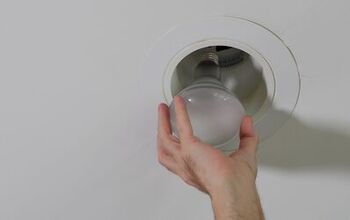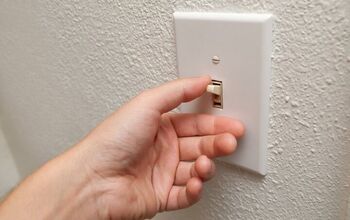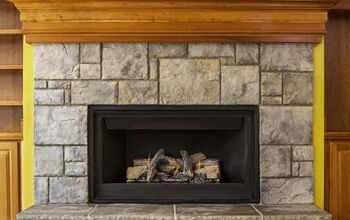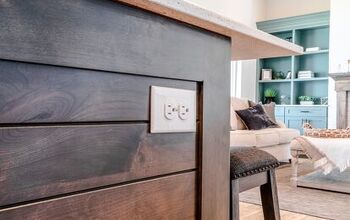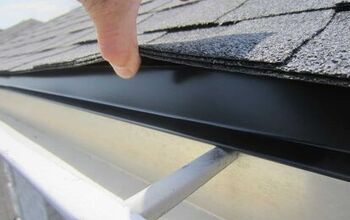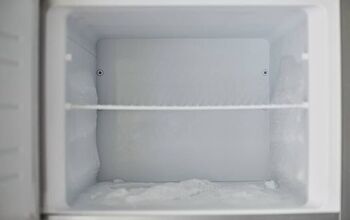Why Is My Toilet Water Brown? (6 Reasons Why & What to Do!)

When you flush, the toilet is the water that refills the bowl coming out brown or discolored? Are you only noticing this in your toilet and not coming from any other taps (shower/sinks/etc.) throughout your home?
Most of us are highly dependent on using water frequently for basic daily needs. That’s why it can be stressful when something is wrong with your water supply. Although abnormally colored water can be alarming, there should be no cause for concern.
If your toilet water is brown all of a sudden, it is likely due to rusted pipes in your plumbing system. Alternatively, it could be due to a damaged well, rusted toilet parts, or hard water mineral buildup. Finally, it’s possible you have one or more clogged pipes. To fix this, try using water softeners or chlorine to lower the iron content in your water. If the issue persists, call a professional plumber to diagnose and fix the issue.
However, let us help you to identify the issue and provide a solution before things get worse. We will explain some of the reasons that your toilet water may be coming up brown and what you can do about it.
Related Content: What Causes Rust In The Toilet Bowl
Do You Need to Hire a Plumber?
Get free, zero-commitment quotes from pro contractors near you.

1. Worn Out Toilet from Use
Daily use can make the toilet wear out. It’s possible your toilet hasn’t been cleaned in the creases for quite some time. Give your toilet a good flush and use a brush to completely clean the bowl. Make sure all the waste is cleared out, and see if the brown water issue persists.
2. Rusted Pipes
The first step is to check every tap in your home, whether it’s the sink or the shower in your bathroom, all the way to your kitchen. If the water is coming out brown from every tap, you have a problem with your entire home’s plumbing system.
This means there’s too much iron in your water. This is especially true for homes that depend on well water and in cities that have more iron content in their water supply than the average city. Under such conditions, rust levels can be abnormally high and cause a problem.
It is quite possible that your iron pipes are old and your water supply has corroded. Such old pipes are causing your water supply to dispense that nasty brown water.
If this is the case, you’ll have to call a professional plumber to evaluate and fix the situation. In some situations, if the rust has been an ongoing issue for a long period of time, the rust could have stained your porcelain bathroom fixtures and you’ll have to replace said fixture.
Should you choose to DIY and remove rust from your home fixtures, you’ll want to use pumice stones, baking soda, lemon and salt, or other commercial cleaners like Limeosol or Magic Erase.
In a better case scenario, your plumber may just have to replace one or two pipes that rusted and your water supply will go back to normal. A proper evaluation will be required by the plumber.
Using a Water Softener System
It’s possible your plumber will recommend a water softening system or other additives to clean the water supply out. Such systems and chemicals can lower the iron content in your water supply. Also, bacteria can be removed and make your water safe again to drink and shower with. While not all traces of iron will be removed, it can prove to be a solid short-term solution.
Using Chlorine
Chlorine can kill most germs within minutes. It’s been proven to be effective against iron bacteria specifically. It works by forcing the many iron particles to oxidize and killing off the bacteria. While it won’t fix your issue of rusted pipes, it can assist in the processing of killing iron bacteria in your water supply.
3. Damaged Well
While not common, if your home runs on well water, it’s possible some sort of organic matter has dissolved in your well. This can cause the brown color you are seeing, while may contain sediments. As your well water has now been infected with something, you should call a professional to take a look at repairing the system. This usually occurs when a storm happens or during construction or landscaping.
4. Rusted Toilet Components
If you checked every tap in your home and only your bathroom has brown water, it means the issue could be a rusted toilet part. While still may have rusty pipes, it’s possible that your toilet is connected to a different water line than the other taps in your home, and that your pipe simply rusted. Another possibility is that the parts inside your toilet are rusted.
To diagnose, check the back of your toilet’s tank and see if you notice any components that have been badly damaged or rusted. If you don’t notice any damage right away, it’s probably safe to assume that it is your toilet’s connections to the pipe that rusted.
5. Hard Water Mineral Buildup
Another reason why your toilet water may be brown are clogged pipes. If you have a relatively new plumbing system, this doesn’t apply to you. Pipes can clog due to hard water minerals. The way it works is when manganese and calcium meet with the oxygen in your toilet’s tank, the water turns brown instantly. And, such minerals can actually build up if you’re using a certain toilet cleaner.
When using certain toilet cleaners, some chemicals are flushed through your plumbing system, causing a buildup over time. A buildup can easily become a blockage, restricting water from moving throughout your pipes. The water is then backed up right into the toilet bowl, causing the discolored water to show.
Such minerals also attack your plumbing system and cause rust on certain metal parts of your toilet tank. Such buildup is often a thick layer that holds on to other debris. Once this happens, this debris can harden and cause further blockages. Finally, this hard debris sometimes breaks off into smaller chunks that fall into the toilet and flow through your water system.
To avoid such blockages from harsh chemicals, go the DIY way and clean the water tank on your own. Try home remedies like white vinegar or hot water to soak the toilet’s components. It’s possible this will help break up the minerals.
6. Clogged Pipes
This will be hard to diagnose. You’ll need a plumber to check it out, but your pipes could be blocked due to particles coming back up into the toilet bowl. To avoid and remove such blockages, a plumber will have to access your plumbing system and check if there’s a clog. As a homeowner, you don’t have the skills or the tools to do this.
What’s more, you must fix this issue at once. If you leave your pipes clogged, they can burst or crack from the pressure that’s building up. If your pipe cracks or bursts, the cost of repair will be that much higher than just fixing a blockage.
Also, such bursts can certainly cause water to back up into your bathroom and even cause mold. You’ll have to clean up the mess yourself or hire a water damage restoration company.
What Causes Toilet Pipes To Rust?
Rust is a form of iron oxide. Simply put, it’s a normal chemical reaction that takes place when steel combines with oxygen in the air and it corrodes. The main factor involved in corrosion is water. Although your pipes may appear to be solid, water molecules can infiltrate minute gaps and crevices in the metal. The moment moisture gets inside, the rusting process begins.
A rust problem is more likely to occur in houses where the plumbing was installed before 1960. Many older plumbing pipes were made of iron, which naturally rusts over time. After 1960, pipes made from alternative options, like PVC, started to become the standard.
Outdated pipe materials are more prone to rust. Opting for newer plastics like PVC or PEX, instead of iron or galvanized steel, may help reduce the likelihood of a rust problem.
What Should You Do About Brown Toilet Water?
The first thing you should try is to eliminate the possibility that brown water is caused by residual waste. Wait for the bowl to refill, the flush cycle to complete, and flush again to ensure that everything has been discarded. If your water is still brown, the good news is that it is undoubtedly not the poop that’s producing the discoloration.
Thankfully, a rusty pipe is not something that is out of your control. There is a very simple solution to this problem: Calling in a professional. Professional plumbers can inspect and diagnosis the issue. They’ll know exactly where to begin and how to repair any problems they find.
Calling a plumber to evaluate the situation and ultimately replace your pipes is your best option. They can help save you money in the long run and prevent lots of headaches. If the issue is only in your toilet, you will probably only need to have those particular pipes changed. However, it’s worth having the rest of your pipes checked to avoid any future problems.
Cost to Replace the Plumbing
In general, plumbing replacement can cost anywhere from $350 to $2,000. This all depends on the size and scale of the project. Whether or not the job requires a simple repair or a more complex replacement, the price for a plumber typically ranges from $45 to $150 an hour. Also, keep in mind that most usually have a minimum charge, a higher first-hour fee, or a trip charge.
When it comes to replacing the piping itself, the replacement of small sections of piping will run you between $352 and $1,838. The average charge for this service is $1,077.
Hopefully, the water discoloration issue you’re having is contained to your toilet because re-piping an entire home or installing completely new plumbing can cost you a pretty penny. Plumbers can usually charge anywhere from $1,500 to $15,000 or more. It’s also important to keep in mind that depending on the extent of the corrosion, the project may require more intense labor.
This could involve removing drywall or portions of the wall in order to reach the pipes. This entire process can have average costs between $5,000 to $15,000. While replacing pipes in your home may end up being a costly procedure, it can help eliminate future plumbing issues.
Is The Rust Dangerous?
Thankfully, rust is not necessarily damaging to your health. Also, since this issue is not occurring in your bathtubs, sinks, or showers, you have little to worry about. It may be gross and unsightly, but it’s not toxic or unsafe. However, the iron in your water caused by pipe corrosion can result in other serious problems.
Rust and mineral deposit buildup can lead to reduced water flow and even more severe clogging. Also, as the pipes corrode, this results in thinning in the metal and weakened pipe walls. If the problem goes unchecked and there is an unexpected increase in water pressure, it can cause the pipe to burst and blow out.
What If I Don’t Want To Replace The Pipes?
When a pipe shows signs of rust, it means that it needs to be replaced. While you might be able to wait for a little while, you want to replace the pipe or repair it as soon as possible. What will happen if you do not replace the pipes, is that eventually, the pipe will corrode so much that you end up with a hole in it. In that case, water will begin leaking within your wall or under your slab.
If water starts leaking, you’re going to have a ton of damage to repair, and it’s going to cost you tens of thousands of dollars. While it may seem like it costs a lot to repair the pipes, this is nothing compared to the $20,000 to $95,000, you might end up paying in extreme circumstances.
Do You Need to Hire a Plumber?
Get free, zero-commitment quotes from pro contractors near you.

Diagnose and then Hire a Professional Plumber
Finding brown water in your toilet isn’t a pleasant plumbing situation and can be a real inconvenience. Although it may be ghastly, it is fixable. Fortunately, since the water discoloration only exists in your toilet, you have a very common plumbing issue on your hands. Since you most likely ruled out residual waste as the cause, the brown water is likely due to a rusty pipe.
It’s possible that your home was built before the 1960s and was outfitted with metal pipes. Obviously, this was out of your control and your pipes would need to be replaced eventually. In the future, try to steer clear of pipes that are prone to rust, such as iron and galvanized steel. Instead, choose one of the many plastic options on the market.
Nonetheless, the corroded pipes should be replaced by a plumbing professional. Plumbing services can be expensive; however, it’s important to hire a professional to prevent future problems.
Also, check out our guide to troubleshoot a toilet that won’t flush.
Related Guides

We are a team of passionate homeowners, home improvement pros, and DIY enthusiasts who enjoy sharing home improvement, housekeeping, decorating, and more with other homeowners! Whether you're looking for a step-by-step guide on fixing an appliance or the cost of installing a fence, we've here to help.
More by Upgraded Home Team



